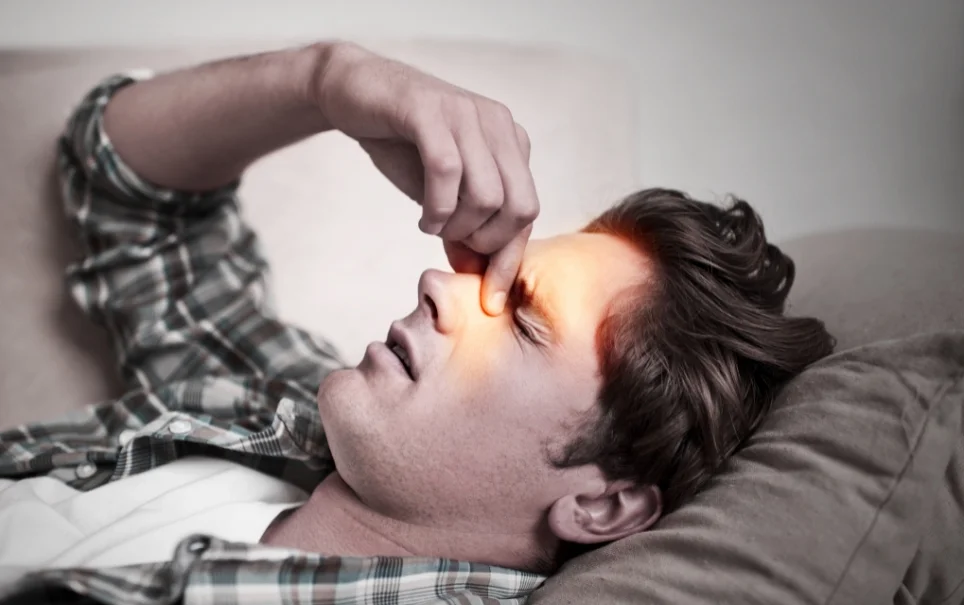
Living with Tinnitus: Tips for Managing tinnitus
What is tinnitus?
Tinnitus is the perception of noise or ringing in the ears when there is no external sound present. It is a common condition that can affect people of all ages. There is no cure for tinnitus, but there are ways to manage it.
What to Avoid
There are a number of things that can make tinnitus worse, so it is important to avoid them. These include:
Loud noise
Exposure to loud noise is one of the most common causes of tinnitus. If you must be exposed to loud noise, wear earplugs or earmuffs.
Caffeine and alcohol
Caffeine and alcohol can worsen tinnitus symptoms.
Stress
Stress can also worsen tinnitus symptoms. Find healthy ways to manage stress, such as exercise, relaxation techniques, or spending time with loved ones.
Certain medications
Some medications can cause tinnitus as a side effect. If you are taking any medications, check with your doctor to see if they could be contributing to your tinnitus.
Sinusitis medications
Sinus infections or sinusitis can trigger tinnitus. The close proximity of the sinuses to the ear canal means that an infection or inflammation in the sinuses can directly affect the ear and lead to tinnitus. The pressure changes and congestion in the sinuses may cause disturbances in the connected auditory pathways, resulting in ringing or buzzing sounds in the ears. To avoid potential complications, it’s crucial to seek early medical intervention and take appropriate medication when experiencing symptoms of a sinus infection or sinusitis.
Tips for Managing Tinnitus
Here are some tips for managing tinnitus:
Identify your triggers
What makes your tinnitus worse? Once you know your triggers, you can try to avoid them. For example, if your tinnitus is worse after drinking coffee, try to limit your caffeine intake.
Use sound therapy
Sound therapy is a type of treatment that uses noise to mask the sound of tinnitus. This can help to make the tinnitus less noticeable. You can use a white noise machine, fan, or even music to mask tinnitus.
Get enough sleep
When you are tired, tinnitus may seem worse. Therefore, it is important to get enough sleep each night. Aim for 7-8 hours of sleep per night.
Manage stress
Stress can also make tinnitus worse. Therefore, it is important to find healthy ways to manage stress, such as exercise, relaxation techniques, or spending time with loved ones. Some specific examples of stress-relieving activities include yoga, meditation, deep breathing exercises, and spending time in nature.
Consider professional help
If you are struggling to manage tinnitus on your own, there are professionals who can help. A therapist can teach you coping mechanisms and a doctor can prescribe medication, if necessary. For example, a therapist can teach you cognitive-behavioral therapy (CBT), which can help you to change your thoughts and behaviors about tinnitus. A doctor may prescribe medication, such as antidepressants or anti-anxiety medications, to help manage tinnitus symptoms.
Additional Tips
Join a support group
Talking to other people who understand what you are going through can be helpful. There are many online and in-person support groups available for people with tinnitus.
Educate yourself about tinnitus
The more you know about tinnitus, the better equipped you will be to manage it. There are many books and websites that offer information about tinnitus.
Be patient
It may take some time to find a treatment that works for you. Don’t give up. There are many people who live successfully with tinnitus.
Remember, you are not alone. Millions of people around the world live with tinnitus. There are resources available to help you manage it and live a full and active life.
Here are some additional tips that may help you manage tinnitus:
Make changes to your diet
Some people find that certain foods and drinks can make their tinnitus worse. For example, some people find that salty foods, sugary foods, and caffeine can worsen tinnitus symptoms. If you find that certain foods or drinks make your tinnitus worse, try to avoid them.
Get regular exercise
Exercise is a great way to relieve stress and improve your overall health. Both of these things can help to improve tinnitus symptoms. Aim for at least 30 minutes of moderate-intensity exercise most days of the week.
Create a relaxing environment at home
A relaxing environment can help to reduce stress and make it easier to manage tinnitus symptoms. Try to create a quiet and comfortable space in your home where you can relax and unwind. You may also want to try using sound therapy to create a more relaxing environment.
Be positive
Having a positive attitude can help you to cope with tinnitus more effectively. Try to focus on the things that you can do and avoid dwelling on the things that you cannot do. Remember, you are not alone and there are people who can help you.
If you have tinnitus, it is important to see a doctor to rule out any underlying medical conditions. A doctor can also help you to develop a treatment plan to manage your tinnitus symptoms.






